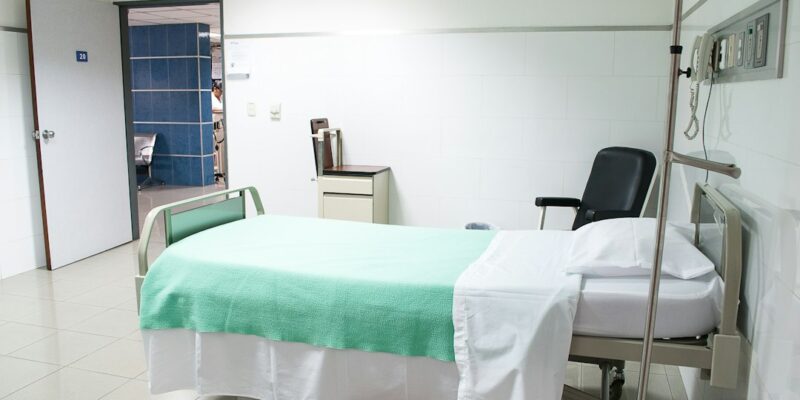
Stay Ahead of the Game: The Importance of Preventive Health Screenings for Early Intervention
Preventive health is a proactive approach to healthcare that focuses on preventing diseases and conditions before they occur or progress. It involves taking steps to maintain good health and prevent illness through lifestyle changes, vaccinations, and regular screenings. Preventive health screenings play a crucial role in this approach by detecting potential health issues early on, allowing for timely intervention and treatment. These screenings are an essential part of maintaining overall well-being and can significantly impact an individual’s quality of life.
Key Takeaways
- Preventive health screenings are important for early detection of health conditions.
- Common screenings include blood pressure, cholesterol, and cancer screenings.
- Screening frequency and types vary based on age and personal/family health history.
- Overcoming barriers such as lack of knowledge and financial barriers is important for accessing screenings.
- Healthcare providers play a crucial role in educating and recommending appropriate screenings.
Understanding Preventive Health Screenings
Preventive health screenings are medical tests or examinations that are performed on individuals who do not have any symptoms of a particular disease or condition. These screenings are designed to identify potential health problems before they become more serious or symptomatic. There are various types of preventive health screenings, including blood pressure screening, cholesterol screening, cancer screenings (such as breast, cervical, and colon), and diabetes screening.
The frequency of preventive health screenings varies depending on factors such as age, gender, family history, and personal health history. For example, blood pressure screening is recommended at least once every two years for adults with normal blood pressure levels. However, individuals with high blood pressure or other risk factors may need more frequent screenings. Similarly, cholesterol screening is typically recommended every four to six years for adults aged 20 and older with normal cholesterol levels.
Benefits of Preventive Health Screenings
Preventive health screenings offer several benefits that can positively impact an individual’s overall health and well-being. One of the primary benefits is early detection of health conditions. By identifying potential issues at an early stage, individuals have a better chance of receiving timely treatment and managing their condition effectively. This can lead to improved treatment outcomes and a higher likelihood of successful recovery.
Another significant benefit of preventive health screenings is cost-effectiveness. Detecting and treating diseases in their early stages is generally less expensive than treating advanced or chronic conditions. By identifying health problems early on, individuals can avoid costly medical procedures, hospitalizations, and long-term treatments. Additionally, preventive screenings can help individuals make lifestyle changes that can prevent the development of chronic diseases, further reducing healthcare costs.
Common Preventive Health Screenings
| Preventive Health Screening | Recommended Frequency | Age to Start | Benefits |
|---|---|---|---|
| Blood Pressure Check | At least once every 2 years | 18 years old | Prevents heart disease, stroke, and kidney disease |
| Cholesterol Test | Every 4-6 years | 20 years old | Prevents heart disease and stroke |
| Colorectal Cancer Screening | Every 10 years | 50 years old | Detects and prevents colorectal cancer |
| Diabetes Screening | Every 3 years | 45 years old | Prevents complications from diabetes |
| Mammogram | Every 1-2 years | 50 years old | Detects breast cancer early |
| Pap Test | Every 3 years | 21 years old | Detects cervical cancer early |
There are several common preventive health screenings that individuals should consider as part of their overall healthcare routine. These screenings can help detect and prevent a wide range of health conditions. Some of the most common screenings include blood pressure screening, cholesterol screening, and cancer screenings.
Blood pressure screening is a simple test that measures the force of blood against the walls of the arteries. High blood pressure, also known as hypertension, is a significant risk factor for heart disease and stroke. Regular blood pressure screenings can help identify individuals with high blood pressure and allow for early intervention through lifestyle changes or medication.
Cholesterol screening measures the levels of cholesterol in the blood. High cholesterol levels can increase the risk of heart disease and stroke. Regular cholesterol screenings can help identify individuals with high cholesterol and enable them to make necessary lifestyle changes or receive appropriate medical treatment.
Cancer screenings are essential for detecting various types of cancer at early stages when treatment is most effective. Breast cancer screening involves mammograms for women aged 40 and older to detect breast cancer early. Cervical cancer screening includes Pap tests for women aged 21 to 65 to detect abnormal cells in the cervix that may lead to cervical cancer. Colon cancer screening involves colonoscopies or stool tests to detect precancerous polyps or early-stage colon cancer.
Preventive Health Screenings for Different Age Groups
Preventive health screenings vary depending on an individual’s age group. Different age groups have different risk factors and health concerns that need to be addressed through appropriate screenings.
For children and adolescents, preventive health screenings focus on vaccinations, developmental assessments, and vision and hearing tests. These screenings help ensure that children are growing and developing properly and that any potential issues are identified early on.
For adults, preventive health screenings include blood pressure screening, cholesterol screening, diabetes screening, and cancer screenings. These screenings help detect and manage common health conditions that can develop with age. Additionally, adults may need specific screenings based on their gender, such as mammograms for women and prostate cancer screenings for men.
For seniors, preventive health screenings become even more critical as the risk of developing chronic diseases increases with age. In addition to the screenings mentioned above, seniors may also need bone density tests to detect osteoporosis, eye exams to monitor vision changes, and cognitive assessments to evaluate memory and cognitive function.
Factors Affecting Preventive Health Screenings

Several factors can influence an individual’s decision to undergo preventive health screenings. Personal health history, family health history, and lifestyle factors all play a role in determining the appropriate screenings for an individual.
Personal health history refers to an individual’s past medical conditions and treatments. Individuals with a history of certain diseases or conditions may be at higher risk for developing related health problems in the future. For example, individuals with a personal history of high blood pressure may need more frequent blood pressure screenings to monitor their condition.
Family health history is another important factor to consider when determining the appropriate preventive health screenings. Certain diseases and conditions have a genetic component, meaning they can run in families. Individuals with a family history of conditions such as heart disease or cancer may need earlier or more frequent screenings to detect potential issues.
Lifestyle factors also play a significant role in determining the need for preventive health screenings. Factors such as smoking, poor diet, lack of exercise, and excessive alcohol consumption can increase the risk of developing various health conditions. Individuals with unhealthy lifestyles may require more frequent screenings to monitor their overall health and detect any potential problems early on.
Overcoming Barriers to Preventive Health Screenings
Despite the numerous benefits of preventive health screenings, there are several barriers that can prevent individuals from undergoing these screenings. Lack of knowledge, fear and anxiety, and financial barriers are some of the common obstacles that need to be addressed.
Lack of knowledge about the importance of preventive health screenings can prevent individuals from seeking these services. Many people may not be aware of the potential health risks they face or the benefits of early detection. Educating individuals about the importance of screenings and providing information about available resources can help overcome this barrier.
Fear and anxiety are also common barriers to preventive health screenings. Some individuals may be afraid of receiving a diagnosis or undergoing medical procedures. Addressing these fears through patient education, counseling, and support can help alleviate anxiety and encourage individuals to undergo necessary screenings.
Financial barriers can also prevent individuals from accessing preventive health screenings. Some people may not have health insurance coverage or may not be able to afford the out-of-pocket costs associated with screenings. Expanding access to affordable healthcare and providing financial assistance programs can help overcome this barrier and ensure that everyone has access to necessary preventive services.
Role of Healthcare Providers in Preventive Health Screenings
Healthcare providers play a crucial role in promoting and facilitating preventive health screenings. They have a responsibility to educate their patients about the importance of screenings, recommend appropriate screenings based on patient history, and provide access to these services.
Educating patients about the importance of preventive health screenings is essential in encouraging them to take charge of their health. Healthcare providers should explain the benefits of early detection and the potential risks of not undergoing regular screenings. They should also address any concerns or misconceptions that patients may have.
Based on a patient’s personal and family health history, healthcare providers can recommend appropriate screenings at the right frequency. They should consider factors such as age, gender, risk factors, and previous medical conditions when making these recommendations. By tailoring recommendations to individual patients, healthcare providers can ensure that screenings are targeted and effective.
Healthcare providers also have a responsibility to provide access to preventive health screenings. This includes offering screenings in their clinics or referring patients to appropriate facilities. Providers should work with their patients to overcome any barriers to accessing screenings, such as financial constraints or transportation issues.
Technology and Preventive Health Screenings
Technology has played a significant role in advancing preventive health screenings and making them more accessible and convenient. Telemedicine and remote screenings have become increasingly popular, allowing individuals to undergo screenings from the comfort of their own homes. This is particularly beneficial for individuals who live in remote areas or have limited mobility.
Wearable technology, such as fitness trackers and smartwatches, has also revolutionized preventive health screenings. These devices can track various health metrics, such as heart rate, sleep patterns, and physical activity levels. By monitoring these metrics regularly, individuals can identify any potential changes or abnormalities and seek appropriate medical attention.
Preventive health screenings are a vital component of maintaining overall health and well-being. By detecting potential health issues early on, these screenings allow for timely intervention and treatment, leading to improved outcomes and cost-effectiveness. It is essential for individuals to take charge of their health by undergoing regular screenings based on their age, personal health history, family health history, and lifestyle factors. Healthcare providers play a crucial role in promoting and facilitating these screenings by educating patients, recommending appropriate tests, and providing access to necessary services. With the advancements in technology, preventive health screenings have become more accessible and convenient than ever before. By staying ahead of the game with regular screenings, individuals can take proactive steps towards maintaining good health and preventing the onset or progression of diseases and conditions.
FAQs
What are preventive health screenings?
Preventive health screenings are medical tests or exams that are conducted to detect potential health problems before they become serious. These screenings are designed to identify risk factors and early signs of diseases, allowing for early intervention and treatment.
Why are preventive health screenings important?
Preventive health screenings are important because they can help detect health problems early, when they are most treatable. Early detection can also help prevent the development of more serious health problems.
What types of preventive health screenings are available?
There are many types of preventive health screenings available, including blood pressure checks, cholesterol tests, mammograms, colonoscopies, and skin cancer screenings. The specific screenings recommended will depend on a person’s age, gender, and overall health.
Who should get preventive health screenings?
Preventive health screenings are recommended for everyone, regardless of age or gender. However, the specific screenings recommended will vary depending on a person’s age, gender, and overall health.
How often should I get preventive health screenings?
The frequency of preventive health screenings will depend on a person’s age, gender, and overall health. Some screenings may be recommended annually, while others may only be needed every few years.
Are preventive health screenings covered by insurance?
Many preventive health screenings are covered by insurance, including Medicare and Medicaid. However, the specific screenings covered will depend on a person’s insurance plan. It is important to check with your insurance provider to determine which screenings are covered.


















